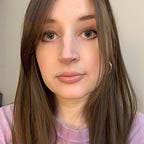A Reading List for Isolation
As we moved into the start of self-isolation and quarantines here in the USA at the beginning of March, I quickly scribbled out a list of books and things I’d read in the recent past that seemed to fit the current mood.
Most of these books touch on loneliness and, in turn, human connection.
From a story about a sudden and mysterious virus, to books about our connection to each other, the world, and social media, here are a few reading suggestions that might offer something useful to you right now.
How to Do Nothing: Resisting the Attention Economy by Jenny Odell
“To resist in place is to make oneself into a shape that cannot so easily be appropriated by a capitalist value system. To do this means refusing the frame of reference: in this case, a frame of reference in which value is determined by productivity, the strength of one’s career, and individual entrepreneurship.”
We’re all caught up in a world of digital “connection”, personal branding, productivity, and an endless stream of media telling us there is nothing worse than doing nothing.
In How to Do Nothing, Odell puts forth the idea that “doing nothing is an act of political resistance in the attention economy”.
Instead of allowing ourselves to be optimized for capital gain, instead of participating in a world that requires our constant attention (thereby taking our attention away from things that matter), we could opt out, or resist-in-place.
Why Read It Now: Even in the midst of a pandemic, people are still shaming others for lack of productivity, still encouraging optimization of the self. It seems we all need to read this text now more than ever.
I cannot sing enough praises for this book.
The Dreamers by Karen Thompson Walker
In The Dreamers, college students begin falling into a deep sleep due to an unknown illness, but it seems they continue to dream. It causes a panic as it spreads throughout the isolated town; people are told not to leave their homes, students at the college are forced into quarantine, and the town is blocked off from outsiders.
Perspective jumps between characters throughout the town to show how they’re dealing with the sudden change. This work of fiction sounds like a thriller based solely on the description, but it’s written beautifully with a somber tone.
Why Read it Now: The story draws some obvious parallels to our current reality, but I don’t feel like the book will leave you feeling panicked or pessimistic (that’s the last thing we need).
The Lonely City: Adventures in the Art of Being Alone by Olivia Laing
“What does it feel like to be lonely? It feels like being hungry: like being hungry when everyone around you is readying for a feast. It feels shameful and alarming, and over time these feelings radiate outwards, making the lonely person increasingly isolated.”
The Lonely City explores something all humans feel (at an increasing rate, it seems): loneliness.
Through stories about real people (mostly artists who lived during the 1960s-90s, such as Andy Warhol), Laing gets to the root of what it means to be lonely, and what it can do to a person.
It also touches on the benefits of loneliness, and how we can use it.
Why Read it Now: We’re all desperate for human connection right now, and I think sometimes just knowing that others feel what you feel can be enough to give us a little bit of that connection. This loneliness won’t last forever.
Braving the Wilderness: The Quest for True Belonging and the Courage to Stand Alone by Brene Brown
“Belonging is the innate human desire to be part of something larger than us. Because this yearning is so primal, we often try to acquire it by fitting in and by seeking approval…true belonging only happens when we present our authentic, imperfect selves to the world.”
Brene Brown dives into the human need for belonging, and our fear of being alone. It is terrifying to stand alone, even when we are standing for something we believe deeply. This is what leads people to stay quiet when they see something wrong going on right in front of them.
It touches on themes of loneliness, human connection, dehumanization/rehumanization, and courage.
Why Read it Now: I read this years ago, but one of the takeaways I remember most is the importance of understanding. It’s easy to shut ourselves off from others, or to shut others off from us, based solely on beliefs, or based on what the masses are doing.
We should all take some time to be a little more understanding of each other, to treat each other as human first and foremost.
My Year of Rest and Relaxation by Ottessa Moshfegh
“Sleep felt productive. Something was getting sorted out. I knew in my heart — this was, perhaps, the only thing my heart knew back then — that when I’d slept enough, I’d be okay.”
A woman decides to embark on what she calls her “year of rest and relaxation”. For an entire year, her only goal is to sleep, to be unconscious as much as possible.
Describing the plot of the book doesn’t do it justice, and this story certainly isn’t for everyone. But I appreciate the ugliness of this story, of Moshfegh’s writing. It feels, to me, what mental illness feels like.
I had my own “year of rest and relaxation” years ago, although it wasn’t quite as intentional. But I came out on the other side, and it’s strangely comforting to read this (fictional) account.
I always share my current reads on Instagram @ courtneymminor
